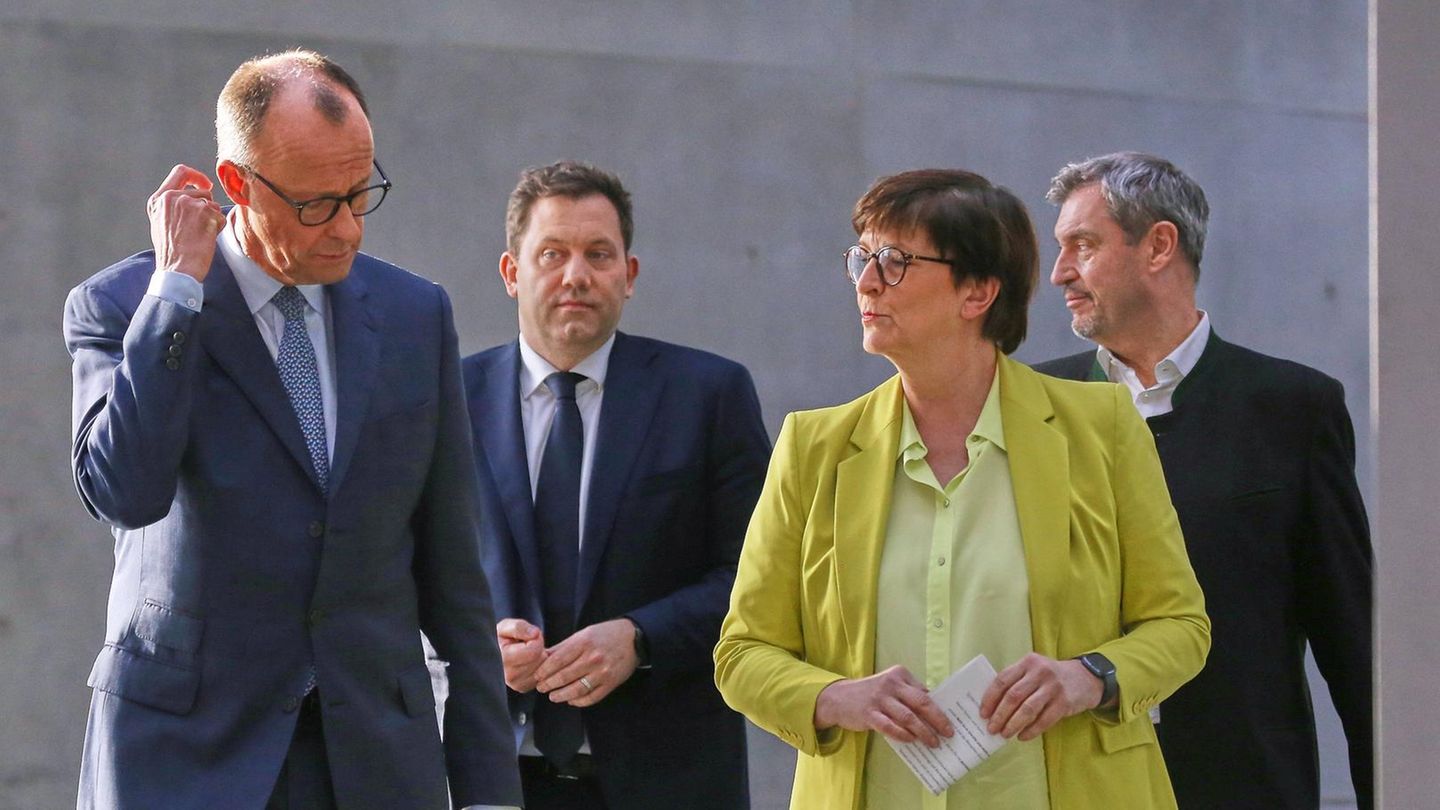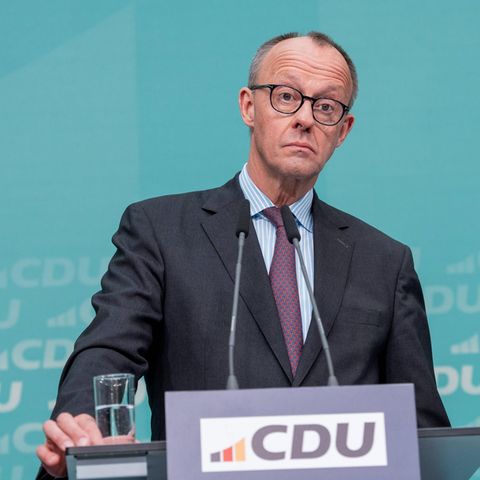Copy the current link
Add to the memorial list
CDU/CSU and SPD make pace for exploratory talks
The Union and SPD and SPD have completed their first talks thirteen days after the Bundestag election, they see a common basis for the inclusion of coalition negotiations. When Friedrich Merz (CDU), Markus Söder (CSU) and the two SPD party leaders Lars Klingbeil and Saskia Esken step in front of the cameras on Saturday afternoon, they have an 11-page exploratory paper in their luggage. In less than two weeks, they have reached fundamental agreements in numerous fields – with a focus on business, migration, work and social issues. But also the “boosting” of the construction industry, the continued existence of the Germany ticket, and the reintroduction of the so -called language daycare centers can be found on paper. That went quickly. One can get the impression that the two parties of the dramatic times in which we live are aware of.
Nobody wants to outdo the other
Another good sign: Nobody wants to outdo the other when the exploratory results are presented. Union and SPD treat themselves to the respective points. Even Markus Söder, who otherwise does not shy away from the profiling at the expense of others, is conciliatory in the press conference. “There are no winners, no losers,” says the CSU boss, “but my feeling is: new partners”. They felt like a “community of responsibility”.
SPD boss Lars Klingbeil immediately dares to take a large, confident outlook: If the two parties with the different “principles, positions, opinions and also characters” managed to agree on such important questions, building bridges will “succeed in this country”. A lot of pathos-but after three years of permanent traffic light government, this appearance can give hope that this does not have to be a permanent state in Germany.
Correct hardness – only with civil allowance
In the case of citizenship, Union and SPD announce a change of policy that goes well beyond a change in the name. In the new “basic security for job seekers”, according to the exploratory paper, the placement in the work is to be given priority again, the traffic light had primarily focused on qualification when the civil allowance was introduced.
Anyone who rejects reasonable work must also expect that their services will be reduced to zero-a tough announcement to the few people who want to take advantage of the citizens’ allowance. However, it is open how such a cut should be implemented under the subsistence level. According to a judgment of the constitutional judges from 2019, cuts of more than 30 percent of the standard requirement in practice are no longer possible.
In the election campaign, the Union had repeatedly pointed out the savings potential in the civil allowance. How much the now planned tightening at the end is still open. However, it is certain that the Union and SPD does not seem to rely on consolidation in some other areas: In addition to the mother’s pension and a bonus for e-mobility, the paper also has a reduction in VAT in the catering and (albeit vague-formulated) confession at 15 euros minimum wage.
Migration turn, but light
The Union and the SPD also announce significant tightening in migration policy. “We will massively expand border controls from the first day of our joint government,” says CDU boss Friedrich Merz. In addition, the Union and the SPD want to suspend family reunification for those who are entitled to subsidiary, the Federal Police should receive the competence to adhere to those obliged to leave, and the goal of “limitation” is to be anchored again in the Residence Act.
The rejections announced by the Union can also be found in the common plans, but with an important addition: The rejection should be carried out in “coordination with our European neighbors”. But the neighboring countries should not necessarily want to accept this – i.e. what such a coordination should look like is only in practice. The Knallhart plan, which Merz announced before the election, is not. In contrast to the Union, the simplified naturalization policy introduced by the traffic lights, however, now wants to capture: “We stick to the reform of citizenship law,” says paper.
Union and the SPD do not have the most important sticking point in their hands
However, the Union and the SPD are dependent on others that their government has a chance at all. Already on Tuesday, the two parties had announced a billion -dollar debt package: a special fund for infrastructure of 500 billion euros and an exception to the debt brake for defense expenditure. Only with the possibility of more debts can a sensible government policy be formulated for the coming years. However, a two -thirds majority is required for these changes to the Basic Law: This requires the Union and the SPD not only to the consent of the Greens and a majority in the country chamber, but also on the fact that the constitutional court does not put any stroke in the way in the end.
Source: Stern
I have been working in the news industry for over 6 years, first as a reporter and now as an editor. I have covered politics extensively, and my work has appeared in major newspapers and online news outlets around the world. In addition to my writing, I also contribute regularly to 24 Hours World.





